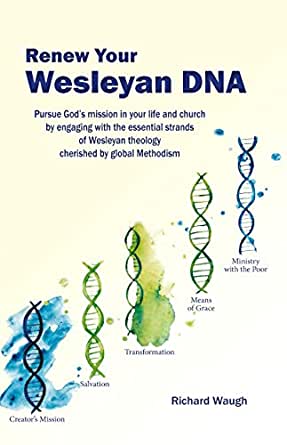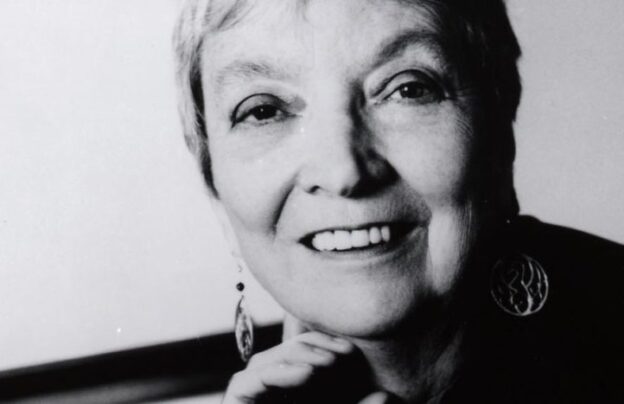Churches around the world honor the “cloud of witnesses” who have gone before us – all those people who shaped, challenged, and carried us forward on our spiritual journey. When I contemplate the saints in my own life, I’m reminded of two interrelated ideas. The first is called six degrees of separation; the second, three degrees of influence. In theory, there are just six or fewer degrees of separation, via introduction, from one person to any other person in the world. Essentially, through a chain of a “friend of a friend” connections, any two people in the world can be linked in a maximum of six steps. In our age of social media “influencers,” the theory of three degrees of influence shouldn’t be a surprise. It asserts that social networks have great influence on us, but that influence doesn’t end with whom we have direct ties. We influence our friends, who in turn influence their friends, which means that our actions influence people we have never met.
What does this have to do with the great cloud of witnesses? For me, the connection is in the metaphorical power of this kind of reflection. These ideas help us visualize the importance of understanding our own place in that cloud.
My own story illustrates this, but first, a small bit of history.
Nelson Mandela was a Methodist, educated in a Methodist boarding school where the chaplain was Rev. Seth Mokitimi. In 1964, Mokitimi became the first Black person elected to lead a major denomination in South Africa, as President of the Methodist Church of Southern Africa (MCSA). He was a powerful influence on Mandela.
In 1963, Mandela was sentenced to life in prison on Robben Island. Rev. Peter Storey, a young, White, newly ordained pastor in the MCSA became his chaplain. Four years later, Storey became the Superintendent Minister at the District Six Methodist Mission in Cape Town. This mission is now a museum that documents the history of District Six and the work of Peter Storey and fellow Methodists in their fight against Apartheid. As time passed, Storey became a bishop and was also elected president of the denomination.
Keeping that bit of history in mind, consider that my father is also a Methodist minister. When I was growing up, he served as the World Editor of The Upper Room, a devotional magazine distributed in 64 languages. The Upper Room gives an annual award to a worldwide Christian leader in recognition of their work. When I was in high school, it was given to Abel Hendricks, a “colored” (the Apartheid classification meaning not Black and not White) Methodist minister in South Africa who had spent his ministry fighting Apartheid. He stayed in our home when he came to Nashville to receive the award. I remember being fascinated as he talked about his life and struggle. Like Peter Storey and Seth Mokitimi, Abel was elected president of the MCSA. In fact, he was elected twice.
In 1980, I had the opportunity to attend the first International Christian Youth Conference on Evangelism (ICYCE), sponsored by World Methodist Evangelism. It was a life-changing event for me. Peter Storey was one of the keynote speakers.
Fast forward a few decades to 2011, when I began working more closely with Dr. Ivan Abrahams, the General Secretary of the World Methodist Council. As a young Methodist minister in South Africa, Ivan was mentored by both Abel Hendricks and Peter Storey. I now hold Ivan as one of my mentors. In his time as a Methodist bishop and then as president of the denomination, he came to know Mandela well; when Mandela died, it was Ivan who was called upon to deliver the sermon at the memorial service.
The idea of six degrees of separation illustrates how small our world really is and how connected we actually are to one another. The notion of three degrees of influence suggests that we have an impact on others in ways we may never realize. My experience attests to the connections illustrated in both these ideas. Who knew I would be connected to Nelson Mandela through a friend of a friend of a friend?
As interesting as I may find it, that’s not the whole story. The real story is about the spiritual inheritance we receive from the great cloud of witnesses – and the importance of finding our own place in that “cloud.”
Abel Hendricks is in my cloud of witnesses; and yet as he sat at our dinner table describing what it felt like to be “colored” in South Africa, he likely was not aware of the impact he was having on the shy 17-year-old girl sitting across from him.
Peter Story is in my cloud of witnesses; and yet as he preached and taught day after day at ICYCE, he likely didn’t notice the skinny 20-year-old whose head was spinning with the magnitude of what she was hearing.
Do you think about spiritual inheritance? We receive it from others, but we must also be willing to leave it for those who follow behind. Do you take seriously your own place in the great cloud of witnesses? If we are connected to everyone else by no more than six degrees, there is great potential for lasting influence. Who knows what kind of impact you may have on the 17-year-old, or 20-year-old, or 45-year-old, or 67-year-old who happens to be the friend of a friend of a friend…
Featured image courtesy Ben Stern on Unsplash.











